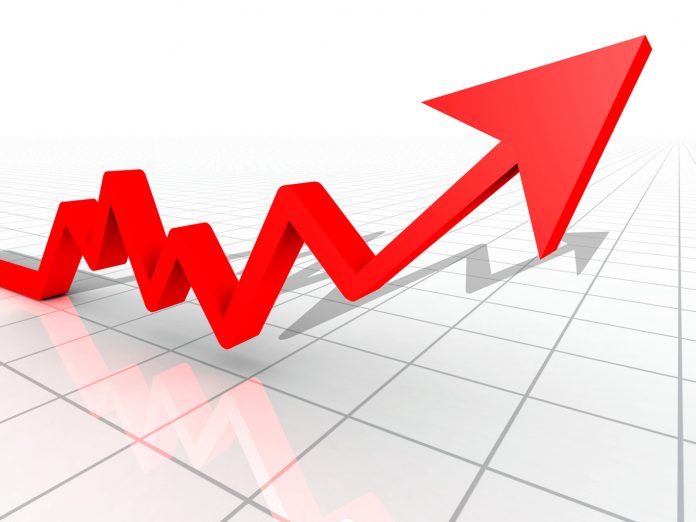Nigerians are facing one of the country’s toughest economic crises in history as headline inflation continues its upwards swing despite measures taken by the Central Bank of Nigeria (CBN) to checkmate it.
The National Bureau of Statistics (NBS) in it’s Consumer Price Index (CPI) report released yesterday, reported that the inflation rate jumped to 33.20 percent in March 2024 compared to February 2024 headline inflation rate which was 31.70 percent.
According to the NBS, the March 2024 headline inflation rate showed an increase of 1.50 percent points when compared to the February 2024 headline inflation rate.
“On a year-on-year basis, the headline inflation rate was 11.16 percent points higher compared to the rate recorded in March 2023, which was 22.04 percent,” NBS said.
“On a month-on-month basis, the headline inflation rate in March 2024 was 3.02 percent, which was 0.10 percent lower than the rate recorded in February 2024 (3.12 percent). This means that in the month of March 2024, the rate of increase in the average price level is less than the rate of increase in the average price level in February 2024.”
The NBS report further showed that the food inflation rate in March 2024 was 40.01 percent on a year-on-year basis – an increase of 15.56 percent points higher compared to the 24.45 percent rate recorded in March 2023.
NBS said the rise in food inflation on a year-on-year basis was caused by an increase in prices of garri, millet, bread and cereal, yam, dried fish, meat, and fruits.
“On a month-on-month basis, the Food inflation rate in March 2024 was 3.62 percent which shows a 0.17 percent decrease compared to the rate recorded in February 2024 (3.79 percent),” the bureau said.
“The fall in food inflation on a month-on-month basis was caused by a fall in the rate of increase in the average prices of Guinea corn flour, Plantain Flour, etc (under Bread and Cereals class), Yam, Irish Potatoe, Coco Yam (under Potatoes, Yam & Other Tubers class), Titus fish, Mudfish Dried (under Fish class), Lipton, Bournvita, Ovaltine (under Coffee, Tea, and Cocoa class).
Reacting to the continous rise in inflation, Professor Godwin Oyedokun of Lead City University, Ibadan simply said when the government is ready to bring it down, it will.
According to him, “When the exchange rate was N1,900/ $, people said it is because we are not producing and therefore exporting nothing, now that it has come down to N1,100/ $, what are we producing?
“Let no one deceive you, people are benefiting from this persistent rise in inflation so when government is ready to bring it down it will.”
The March Consumer Price Index (CPI) which measures the rate of inflation was released at a time when measures by the CBN to strenghten the naira against foreign exchange have seen some positive results.
The naira has appreciated against the dollar in recent weeks, gaining over 40 percent from about N1,900/$ to about N1,100/$1 now.
The CBN had at its last Monetary Policy Committee (MPC) meeting, raised Nigeria’s interest rate from 22.75 percent to 24.75 percent in effort to curb inflation.
This interest rate increase had attracted mixed reactions from economic experts who believe the policy will hurt the economy more than it will help to bring down inflation.
Mr. Paul Alaje, an economist, who was speaking at a recent forum said the hike in interest rates has made the cost of borrowing high. He said even those who borrowed before are now receiving letters from their banks because of the review in interest rates. “So it is definitely going to have impact negatively on businesses,” he said. “SMEs borrow money too and they will also face the same challenge.”
While agreeing that there is need to raise the interest rates, Alaje said raising it by 600 basis points in a space of five weeks is just too much. “The cost of the increase is more than the benefits of the increase,” he said. “When you are combating inflation and you increase the interest rate so high, it will discourage investment and when you discourage investment you bring down the GDP. Yes of course the forex will grow because foreign investors will come in with their portfolio investments, but whether they will invest in the real sector, the answer is no.”
Also speaking, President of the Nigerian Association of Small and Medium Enterprise (NASME), Abdulrasheed Yerima said the new interest rates policy will negatively affect investment in the small and medium enterprise (SME) ecosystem especially startups who are trying to start new businesses in MSME.
According to him, “It is also going to affect expansion negatively. Government should have waited for us to adjust to this high cost of energy and high cost of transportation.
“Yes the naira is firming up, but they should have allowed us some time for the naira to firm up because some of us import our raw materials from overseas.
“So we had expected government to allow the system to stabilise before any increase in interest rates.”


